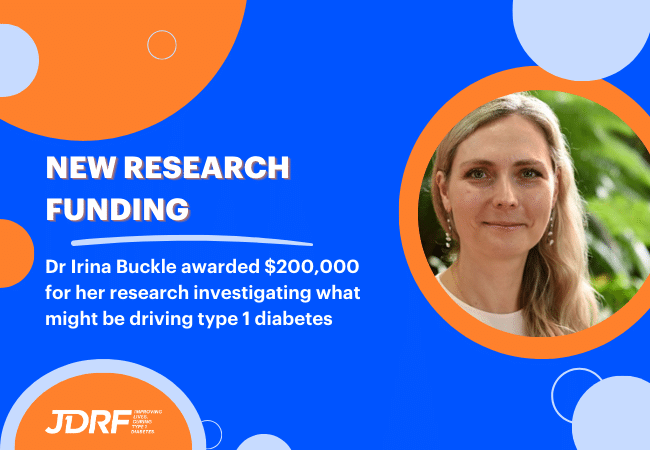Your child’s return to school after a type 1 diabetes diagnosis

The days, weeks and months following your child’s type 1 diabetes (T1D) diagnosis are full of firsts. And one of the biggest milestones your family will work towards is your child’s first day back at preschool or school.
You’ll no doubt be feeling uncertain and will have many questions in the lead up to their return, so we’ve compiled some of the most common FAQs for you, including what to prepare in advance, conversations to have with the school staff, helpful resources to check out, and more.
What conversations do I need to have with my child’s school?
Principals, teachers and office staff need to receive information about T1D. They need to understand what the condition is and how it will impact your child’s time at school. They also need to understand the risks and what to do in an emergency.
Most importantly, they need to have a school diabetes management plan to follow. They must understand this fully and be prepared to follow it daily.
TIP: Visit Diabetes in School to download a ‘back to school after T1D diagnosis’ checklist.
Who is responsible for what?
Parents are responsible for:
- notifying the school about their child’s diagnosis
- educating school staff about T1D (themselves or using a diabetes educator)
- providing the school with a diabetes management plan
- providing and maintaining stocks of diabetes supplies.
The school is responsible for:
- being aware of the diagnosis
- understanding and enacting the diabetes management plan
- knowing where the diabetes supplies are kept and working with parents to ensure they are maintained
- ensuring the right information about T1D and the child is given to relevant staff.
The child’s healthcare team is responsible for:
- working with parents to create the school’s diabetes management plan and assist in keeping it up to date
- helping to create plans for special circumstances, like camps.
What supplies should I give the school?
The school will need at least one hypo kit used to treat low blood glucose levels. It’s best practice to have this kit labelled with your child’s name, a written description of your child’s hypo symptoms and instructions of how to treat a hypo.
The main component of the kit should be fast-acting carbohydrates, such as juice or jellybeans. Make sure they’re labelled and secured so other children don’t consume them.
Also include an inventory of supplies in the box so it’s easy to identify when things need replacing, as well as the contact details of yourself and any emergency contacts.
Most schools don’t take on the responsibility of administering glucagon injections in the case of a severe hypo. An ambulance should be called to administer this treatment. You could ask the school if it’s possible to keep a glucagon injection on-site to use in case you reach your child before the ambulance (you will be notified after an ambulance has been called).
How should we approach sports days or special events?
Your child can generally participate in all special events – such as parties, school sports carnivals/gala days and excursions – with a little extra planning. It’s important they’re included in all school to avoid exclusion and social isolation, and this is a great message for the school to hear and understand from the beginning.
Any moderate or strenuous sports activities will likely mean your child will need extra carbs or less insulin to stop them having a hypo. This can be written into your child’s diabetes management plan.
Being notified about special events ahead of time is important. It can really help if you build a good relationship with your child’s teacher and office staff, and always be responsive to any information provided or requested.
Many parents become more involved with school events, at least in the period directly following diagnosis, to help the school manage their child’s diabetes and provide ongoing education.
Should my child be treated any differently when it comes to their behaviour?
In time, you’ll probably learn how your child’s behaviour can change when their BGLs aren’t in range. Your child’s teacher should be made aware of what these changes are, so they can be on the lookout for them too.
But aside from diabetes-related issues, your child should be treated the same as every other child as much as possible.
If they’re being disciplined, it should never interfere with diabetes treatment or regular mealtimes.
Should my child’s friends know about their T1D?
Your child’s friends and classmates will likely realise that your child is dealing with something extra. Many children find that telling their friends or classmates is a positive experience and they are then able to feel supported at school. Your child might also feel more confident with their T1D at school with the support of a friend or buddy, especially if they’re in early primary school. Be guided by your child, as they might feel nervous telling a friend.
With clear communication and extra planning, your child’s return to school after diagnosis can run smoothly and be an important step in learning to live a full and healthy life with T1D.
More resources
- Back to school with type 1 diabetes: video and resource list
- School and your child’s T1D: a checklist
- Visit as1 Diabetes for great resources about T1D and school.




